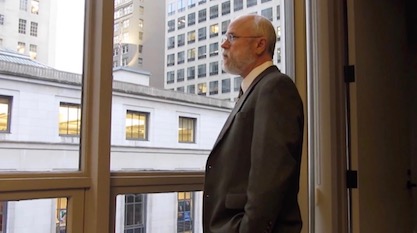 Evolution
Evolution
Behe Up Against the Sociology of Science


No evaluation of the evolution debate is complete without considering the sociology of science. Molecular biologist Douglas Axe delivers on that in a great reflective piece about the reception of Michael Behe’s recent book Darwin Devolves. It’s not a review per se. As Axe says, he is too close a colleague of Behe’s for that. He’s not too close, though, to observe the “commotion that ensues whenever this gentle Catholic puts his thoughts on paper.”
Axe discusses the review of the book that appeared in Science before Darwin Devolves had even been published. (See the book’s website for responses.)
The editors of this epitome of establishment journals were duty-bound to publish a hostile review, of course, and they did. The usual custom is for one person to review a book, but since opinion might look split if only one reviewer had opposed this one author, three people teamed up for task.
The Scientific Method?
Yes, maybe that explains the peculiar editorial choice of multiple authors. You could predict how the review would be written — not only that it would be negative but the precise ways in which it would also be spurious:
It’s the familiar unconvincing stuff: complaining about Behe’s word choice; inflating their favorite evolutionary stories to the level of scientific demonstrations and their favorite critiques of Behe to the level of scientific refutations; piling on the standard he-failed-to-mention-this complaints.
They’re brandishing fake weapons. You aren’t supposed to read the papers they cite in their attempt to give the impression that Behe has been refuted. If you did, you’d find that impression false. …
Instead of actually engaging the literature, the authors of the Science review engage in citation parading. They’re signaling that they’re on the academically respectable side of the issue — the anti-Behe side.
Says Axe, it’s the “part of the scientific method they don’t teach in school”:
Notre Dame sociologist Christian Smith has described the situation perfectly. Science, he observes, operates in a culture with its own moral code. The most reliable way to demonstrate this, Smith says, “is to violate moral norms and observe the reactions.” Behe has performed this experiment for us, and the result is exactly as Smith predicts. If you break the moral order in a Behe-like way, “at first you may be amusingly dismissed as nuts, unworthy of a serious response.” But if you “come to be perceived as serious and as garnering some legitimacy,” as Behe has, “then agents of the relevant moral order will come down on you with fierce emotion and retribution to eradicate the desecrating offense.”
How They Dance
“Fake weapons” and deceptive “citation parading” deployed against a “desecrating offense.” Perfect. Read the rest at The Gospel Coalition. As Doug Axe writes, the scientists who wrote the review are perfectly competent professionals who could have authored a perfectly fair review. But science’s “moral order,” unless you wake up from it as Behe or Axe has done, is like a puppet master that suspends otherwise smart and conscientious people from strings. Without their knowing it, it makes them dance.
So it is in science when controversial and sociologically freighted subjects like evolution come up. You could point to a similar dynamic in other fields of intellectual endeavor. But nowhere is the pretense of objectivity more vigorously, falsely, and pretentiously insisted upon.
Photo: Michael Behe in a scene from Revolutionary: Michael Behe and the Mystery of Molecular Machines, via Discovery Institute.
